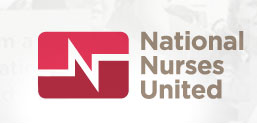You are here
RN Volunteer Opportunities for First Aid Support in Cities Across America
Primary tabs
 nationalnursesunited.org - RN Response Network - October 13, 2011
nationalnursesunited.org - RN Response Network - October 13, 2011
As a past volunteer for the Registered Nurse Response Network (RNRN), we wish to thank you again for your desire to help people and communities in need.
Now we are asking for your help again, to join our first aid efforts in cities across the U.S. where Americans are rallying for real solutions to our national economic emergency.
You were there when we dispatched volunteers to assist with the recovery effort following a tsunami in South Asia, a hurricane on the Gulf Coast, Southern California wildfires, the earthquake in Haiti, and with contributions following this spring’s disaster in Japan.
RN volunteers have made a difference on each occasion, even when we have faced huge hurdles, including substantial governmental impediments, for example, to placing volunteers on the ground in Haiti. Yet on each occasion, RNRN did act, and sent as many volunteers as possible in these heroic humanitarian efforts.
Healthcare emergencies come in different forms. In America today, nurses have chronicled broad declines in health and living standards that are directly linked to the national economic crisis, and those families whose health has deteriorated due to loss of jobs, un-payable medical bills, poor nutrition, and housing and retirement insecurity.
Months ago, the National Nurses United, of which RNRN is a project, led efforts to insist on a change in national priorities to protect our patients, families, and communities, and to hold those accountable, especially the big bankers and investment firms who gambled with our mortgages, our pensions, and our future. You can learn more about that effort atwww.mainstreetcontract.org.
As Nation Editor Katrina vanden Heuvel wrote, citing the role of nurses and NNU, in a Washington Post column today headlined “Nurses' Prescription for a Healthy Economy":
“If you want to know just how bad things are for those hit hardest by the Great Recession, ask a nurse: They see more young men suffering heart attacks, more anxiety in children, and more ulcers and stomach illnesses in people of all ages. Financial struggles are forcing more patients to forgo necessary medicines and treatments.”
What You Can Do to Help
NNU has announced support for the Occupy Wall Street protests that are happening across the nation. Those encamped in cities and small towns across America include students and other young people. There are also many supporters of the movement who are vulnerable in our society – the chronically unemployed, homeless and uninsured.
There have been requests for some basic first aid services, especially as fall and winter approach, and volunteers from RNRN/NNU may participate in helping to meet those needs in our communities.
If you are interested in volunteering at a First Aid station in your community, please fill out this form.
Thank you for all that you do.
Registered Nurse Response Network (RNRN)



Comments
Thoughts on Developments in Freedom Plaza and Elsewhere
On Oct 13, 2011, at 3:59 PM, Mark Kleiman wrote:
1. The half-life of useful knowledge of what is going on in any location is perhaps 18 hours. Things change so quickly that only a continual presence on the ground and ability to respond fluidly would allow any real planning.
2. Primary Prevention
a. The more cameras the better. Especially elevated immed above street level.
b. Special efforts should be made to official news media to make sure they know how to get emergency medical attention, who to look for, where resources will be prepositioned. This might encourage them to stay.
c. Direct contact from nurses’ unions and professional organizations with the police, indicating that the nurses will be there andwill have a visible presence, and asking how the officers can be alerted so as not to beat them, may have a chilling effect on some of the brutality. Politically, the nurses should also make it clear that they are happy to treat all injured persons, including any police who are injured.
3. Secondary Prevention
a. Medical tents are fixed targets and should be broken down and hustled to safety at the first sign of trouble – unless people are prepared to sacrifice the medical staff and supplies for tactical / media reasons.
b. Roving bands of EMTs and RNs with well-stocked backpacks and accompanied by an assistant / flak catcher will be much more effective.
c. Assume cell-phone jamming. Have back up walkie-talkie capability and train the rovers in how to use them.
d. Consider prepositioning one or more volunteers with training and proper intros to the staff, in the EDs of all likely receiving hospitals to
i. Note who is coming in as a result of police-inflicted trauma;
ii. Act as coordinators with legal / media teams; and
iii. Deter the police from engaging in follow up brutality in the hospital (or at least document its occurrence.)